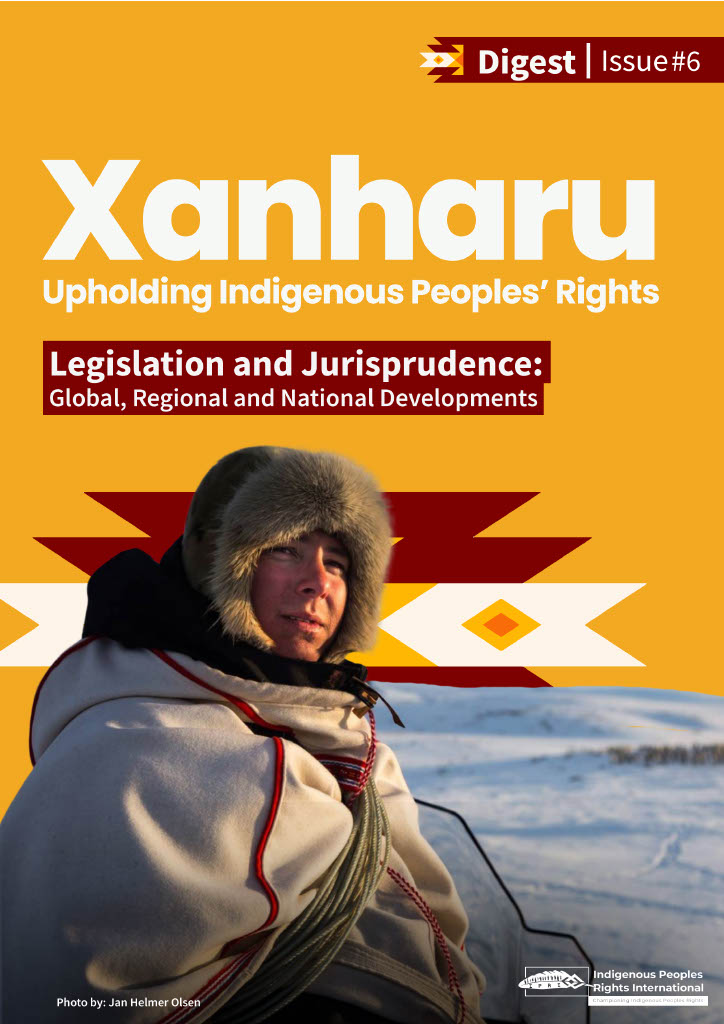The centuries of struggle by Indigenous Peoples around the world against colonization, forced assimilation and systemic discrimination have resulted in the adoption of the UN Declaration on the Rights of Indigenous Peoples (UNDRIP) by the UN General Assembly in September 2007. The UNDRIP sets the minimum international standards for the respect, recognition, and protection of the rights of Indigenous Peoples (art. 43). The United Nations General Assembly has repeatedly reaffirmed UNDRIP, most recently explaining that it “addresses the individual and collective rights of Indigenous Peoples and has positively influenced the drafting of several constitutions and statutes at the national and local levels and contributed to the progressive development of international and national legal frameworks and policies.”
Despite this milestone achievement of Indigenous Peoples, their rights continue to be violated in law and practice in many parts of the world. However, more and more legislation and jurisprudence affirming the rights of Indigenous Peoples, especially to their lands, territories, and resources, to self-determination and to their cultural heritage, are being issued by different authoritative bodies in line with the UNDRIP and with universal and regional human rights treaties. The latter are also increasingly interpreted in a way that is consistent with UNDRIP.
IPRI is therefore issuing this Digest as a compilation of legislation and jurisprudence in relation to Indigenous Peoples’ rights at the international level (UN system and perhaps others), at the regional level (regional human rights bodies), and at the national level (national courts and laws). Among other things, the cases in the Digest illustrate EMRIP’s conclusion that “many of the rights contained in the Declaration are already guaranteed by major international human rights instruments and have been given significant normative strength, including through the work of the treaty bodies, regional and national courts.”


